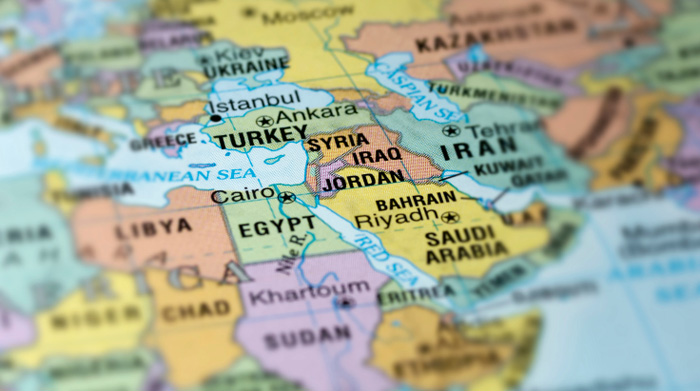KLAUS SCHWAB
New technologies are emerging so rapidly that societies in the Middle East are now having trouble coping with their impact. By affecting everything from the nature of work to what it means to be human, technological changes could prove overwhelming if we do not collaborate to understand and manage them.
Around the globe, entire industries are being redefined and created from scratch, owing to groundbreaking developments in artificial intelligence, robotics, the Internet of Things, autonomous vehicles, 3D printing, nanotechnology, biotechnology, materials science, energy storage, and quantum computing. We at the World Economic Forum have dubbed this wave of innovation the “Fourth Industrial Revolution,” because it is fundamentally changing the way we live, work, and relate to one another. And these changes will be felt as much in Cairo, Dubai, and Riyadh as in New York, Frankfurt, and Hong Kong.
New technologies such as the steam engine and the cotton mill launched the First Industrial Revolution, which was accompanied by historic sociopolitical developments such as urbanization, mass education, and mechanized agriculture. Thanks to electrification and mass production, the Second Industrial Revolution introduced entirely new social models and forms of work. And with the advent of digital technology and instant telecommunications, the Third Industrial Revolution, playing out over the past five decades, has connected the planet and shrunk time and space.
The Fourth Industrial Revolution will be no less transformative: individual technologies will be influential, but changes in our social and economic systems will do far more to shape our future lives. At this stage, there is no consensus on such basic issues as personal-data ownership, infrastructure security, and new disruptive businesses’ rights and responsibilities. What is needed is a conceptual framework to help businesses, governments, and individuals anticipate the radical technology-driven shifts – in business models, ethics, and social issues – on the horizon.
To ensure the future prosperity of the Middle East, its governments and citizens must ask themselves if new technologies are being designed and adapted to meet real social needs, or if they are simply ushering in change for its own sake. More generally, we must focus not just on technological progress and economic productivity, but also on how these forces are affecting people, communities, and the environment.
As the Fourth Industrial Revolution continues, four principles should guide the region’s policies and their implementation. For starters, focus should be placed on systems rather than on any individual technology; only by observing how divergent technological, social, and economic forces interact with one another can any country’s leaders and citizens determine and predict how business, society, and economics may change.
Second, there must be push back against the common fatalistic view that progress is predetermined. Communities and individuals should be educated and empowered to master technologies for truly productive purposes, rather than being mastered by them for someone else’s ends. If we fail to harness new technologies for ourselves, we will have surrendered our personal and collective agency, leaving little reason for optimism.
Third, we should design new technologies and systems with the future in mind, rather than blindly accepting change as it comes. Integrating transformative technologies into our social and economic systems will require close collaboration between stakeholders in government, industry, and civil society. Otherwise, our future will be decided by default circumstances instead of our own collective judgment.
Finally, social and ethical considerations are not a bug to overcome or override; the region’s shared values should be a central feature of all new technologies. If technologies are being used in ways that exacerbate poverty, discrimination, or environmental degradation, they have not been optimized for the future that the people of the Middle East want to build. Investments in new technologies are justifiable only if they contribute to a safer, more integrated world.
No single stakeholder can address all of the Fourth Industrial Revolution’s social and economic challenges, not even government. The business community, for its part, must create an environment in which technologies are developed and deployed safely, and with social considerations in mind.
Governments, too, must be actively engaged in how innovations are introduced to society. Policymakers should maintain close collaboration with the technologists and entrepreneurs leading the revolution, lest they fall behind. And all of us, as individuals, must stay informed so that we can understand and take action on new issues that emerge from the complex interplay between technology and society.
The Fourth Industrial Revolution will usher in systemic changes that demand collaborative engagement. As the countries of the Middle East adapt their economies to the impact of new technology, they will need to consider new ways of working together across public and private spheres. Because the pace of change will only continue to accelerate, transparency must become greater for all stakeholders, so that every part of society can weigh the risks and rewards of each new development.
We live in an age of complexity, and sound leadership in the Middle East, as everywhere around the world, calls for a wholesale shift in how we think about collaborative engagement for the future. If we are to avoid the dystopian outcomes that technology can easily produce, we must collectively envision the future that we want to create.







Comments